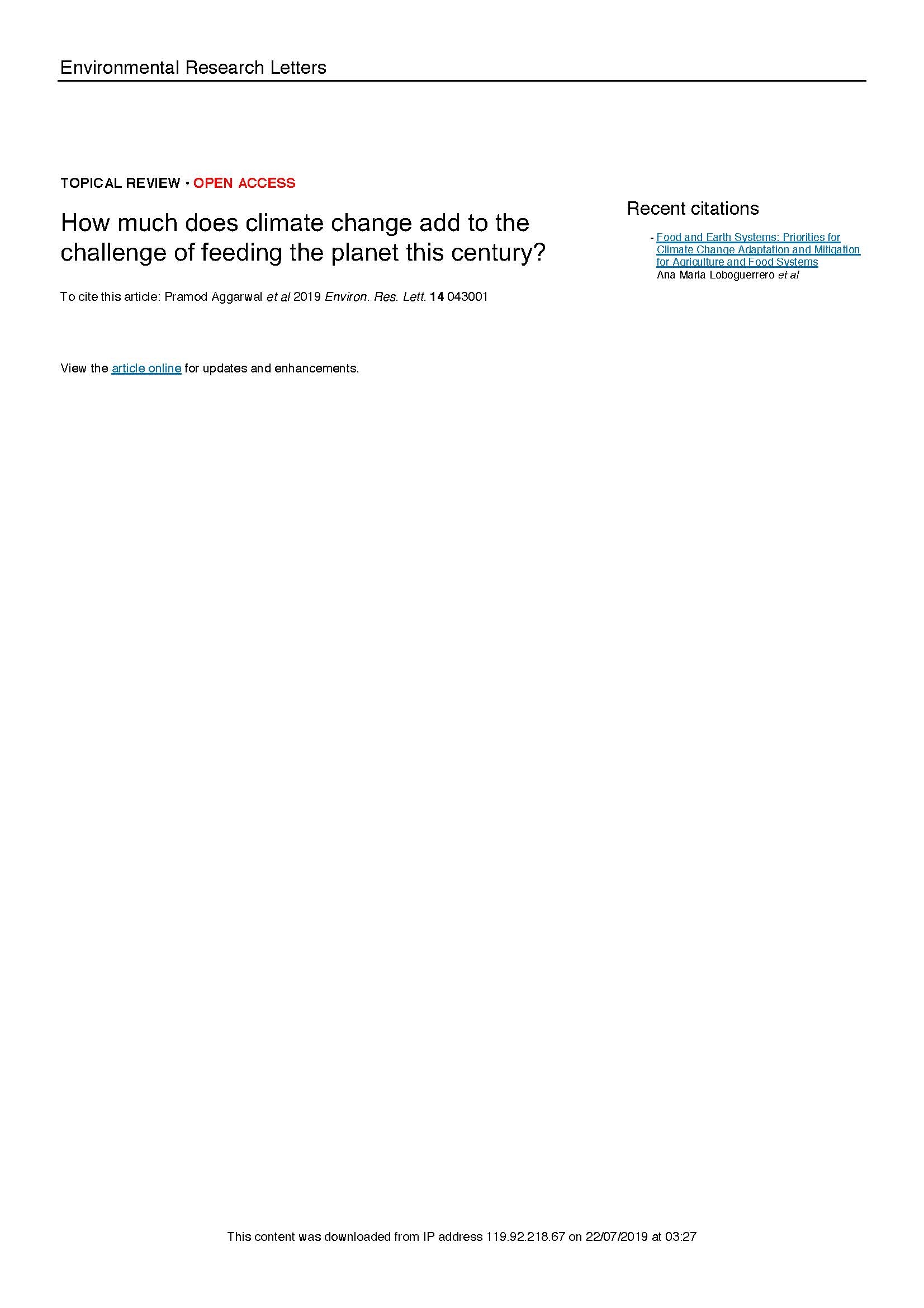How much does climate change add to the challenge of feeding the planet this century?
The impacts of climate change on crop yields, as projected by a slew of impact assessments carried out since the 1980s, have brought the issue of future food insecurity to the fore. A meta-analysis of ~27 000 data points from studies published over the last four decades reveals that at country level, average impacts of climate change on crop yields up to the 2050s are generally small (but negative) for rice and wheat, and modest for maize, provided farmers adopt practices and technologies such as improved varieties, planting at optimal times, and improved water and fertilizer management. These technologies also have the potential to reduce differences across political, economic and climatic regions. Once these are adopted, climate change may not add significantly to the challenge of food production for the majority of countries except for some potential hotspots distributed around the world. Massive investment, policy, and institutional support will be needed, however, to facilitate adoption and scaling-out of such practices, and to address climatic variability.














